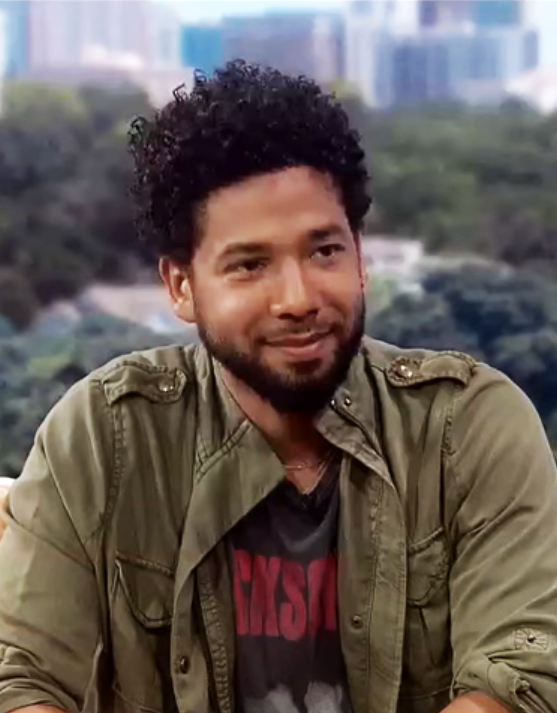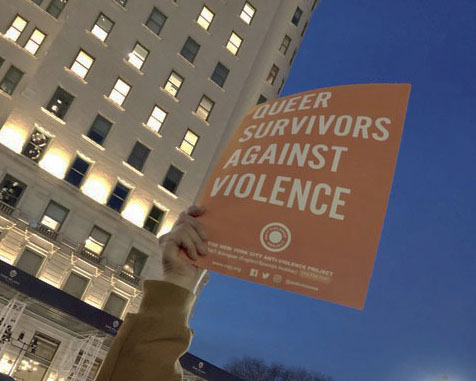
BY ALEJANDRA O’CONNELL-DOMENECH | Despite the freezing temperature, L.G.B.T.Q.I.A. community members and allies rallied at Manhattan’s Grand Army Plaza last Friday in solidarity with Jussie Smollett, who suffered an alleged hate-crime attack early last week in Chicago.
The openly gay black actor is known for his portrayal of Jamal Lyon on the TV series “Empire.”
The event, near the southeast corner of Central Park, drew about 100 people and was organized by VOCAL New York.
“I am infuriated with what happened to Jussie,” said Angelica Torres, a model and transgender advocate who spoke at the Feb. 1 rally.
On Tues., Jan. 29, Smollett told Chicago police that while walking in the Streetsville neighborhood at 2 a.m. that morning he was attacked by two men who punched him in the face while shouting racial and homophobic slurs. The two unknown attackers then allegedly poured an unknown chemical substance on Smollett and tied a rope around his neck.

Those rallying in support of Smollett say the attack proves that the rhetoric and policies of President Donald Trump are promoting more violence against groups who are already targeted for and vulnerable to attacks.
According to police, Smollett was still wearing the rope when they arrived. The actor then checked himself into Northwestern Hospital and was released in good condition.
The two men were also allegedly yelling, “This is MAGA country,” referring to Trump’s campaign slogan, “Make America Great Again.” And according to The Chicago Tribune, Smollett had previously received a threatening letter in a white envelope with the word “MAGA” written on the upper left-hand corner. Those at the rally said the attack is further proof that MAGA is a racist and homophobic slogan.
“This is no isolated incident,” Torres declared. “This happens every single day to L.G.B.T.Q.I. people and people of color.”
And not all are as lucky as Jussie, they noted.
The demonstrators also called for justice Candance Towns and Dana Martin. Towns, a black transgender woman who was killed in Macon, Georgia, was the 23rd transgender person to be murdered in the U.S. in 2017.
Martin, a black transgender Alabama woman, was found shot to death in her vehicle in Montgomery in January. Her death is this year’s first known murder of a transgender woman.
According to a report from the Human Rights Campaign since 2013 the organization has documented at least 128 transgender people who were victims of fatal violence. At least 110 of them were transgender people of color. According to HRC’s Web site, about nine out of 10 of these victims were transgender women with 45 percent of all deaths occurring in the U.S. South. The amount of violence endured by transgender people within the last five years has been labeled an “epidemic” by HRC.
“This is bigger than Jussie,” said activist and author James Felton Keith, who is the founder of Slay TV. Keith spoke about his reluctance to hold his husband’s hand in public out of fear of having bottles thrown at them.
“I hope you all will join us outside of here, especially those who are not queer people of color,” he said. “We need your support because all of us are risking our lives just coming out of the front door every morning.”
Keith then invited all those in attendance to attend the Trans March on Washington, which is scheduled to take place April 1.































